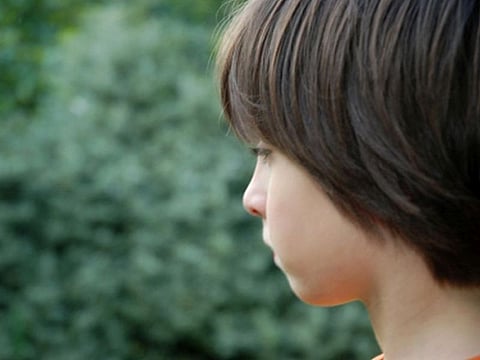Disabled Kids at Higher Risk of Abuse, Study Finds
MONDAY, March 6, 2017 (HealthDay News) -- Children with certain mental or behavioral disorders are at increased risk of abuse or neglect, a new study suggests.
The findings add to evidence that children with disabilities face higher abuse risks. But they also suggest those risks vary depending on the type of disorder a child has.
"We've known for years that children with disabilities have an increased risk of abuse," said Dr. Vincent Palusci, a pediatrician at NYU Langone Medical Center, in New York City.
But the new study "took a deeper dive," he said.
Overall, the researchers found that children with autism, Down syndrome or certain birth defects, such as spina bifida, were not at heightened risk of abuse.
But, children with intellectual disabilities were. The same was true of kids who fell into the broad category of "mental or behavioral disorder" -- which included problems ranging from depression and anxiety to developmental delays to personality disorders.
Palusci, who was not involved in the research, specializes in treating children who've been abused or neglected.
He said if pediatricians know which children with disabilities are most at risk of abuse, they can take steps to help lower the odds. For one, he said, they can try to prepare parents for some of the stresses they might face in dealing with their child's special needs.
Kids can be at greater risk, Palusci noted, when their parents feel overwhelmed and unsupported.
Melissa O'Donnell, the lead researcher on the study, agreed.
"Those who work with families who have a child with disability should be aware of the extra support required for these families, to assist in meeting the child's health and developmental needs," said O'Donnell. She is a research fellow at the University of Western Australia's Telethon Kids Institute.
Parents may need extra help in "managing the often more complex parenting environment," she added.
But parents themselves are not always the perpetrators of abuse, Palusci pointed out: It can be any caregiver.
"So you also need to be very careful about who you leave your child with," Palusci said.
Other kids can be the culprit, too. One recent U.S. study found that children with disabilities were more likely to be bullied at school, compared with other students.
The new findings come from data on more than 500,000 children born in western Australia between 1990 and 2010. Just under 5 percent had an abuse or neglect allegation on record with child protective services; "abuse" included physical, sexual or emotional abuse.
O'Donnell's team found that while children with disabilities made up about 10 percent of the population, they accounted for one-quarter of all maltreatment allegations -- and 29 percent of all substantiated allegations.
When the investigators took a closer look, they saw that the risk varied based on the type of disability.
Children with intellectual disabilities were at greatest risk. They were twice as likely as kids without disabilities to have a maltreatment allegation on record. But even among those kids, the picture varied. Those with severe disabilities were not at elevated risk, while those with milder impairments were, the findings showed.
Similarly, children with autism, Down syndrome and birth defects were not at heightened risk, the study authors said.
According to O'Donnell, there are some potential explanations. Families of children with those types of disabilities may get more support, for one. In addition, parents of children with autism and Down syndrome tend to be older and higher-income, versus other parents -- which may mean they have more resources.
In fact, O'Donnell said, children with disabilities that were most strongly linked to abuse often had other risk factors. They were more likely to have parents who were young, low-income or had mental health issues of their own.
As far as which came first -- the abuse or the child's disorder -- it was not always obvious. It "could definitely be the case" that abuse contributed to, or worsened, some kids' behavioral problems or mental health symptoms, O'Donnell said.
In other cases, though -- such as with intellectual disability -- the abuse clearly came later, she added.
The findings point to a need for more "collaboration" between child protective services and the people who care for children with disabilities, O'Donnell said.
In the United States, those services differ by state and locality. But in general, Palusci said, there is growing awareness that many kids who suffer neglect or abuse are also "medically fragile."
So, a child with a disability might be placed in a specific foster home prepared to handle her special needs.
"It is getting better," Palusci said. "But we still need to do a lot more."
The study results were published online March 6 in the journal Pediatrics.
More information
The U.S. Department of Education has resources for parents of children with special needs.



